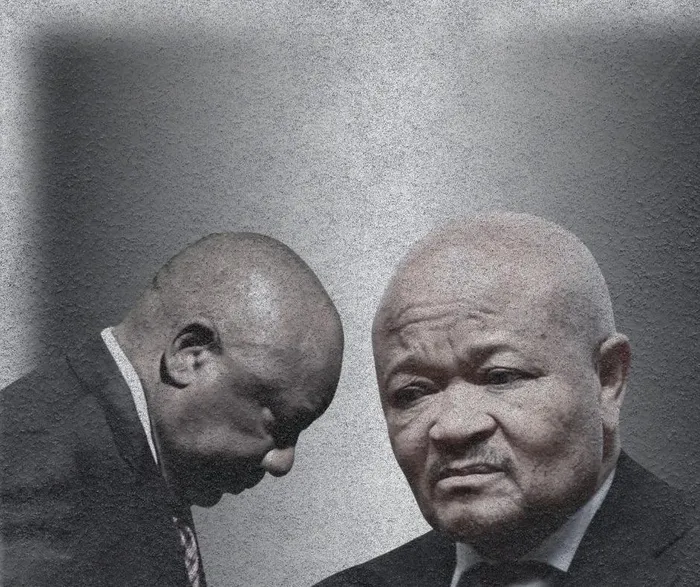South Africa Needs Action, Not Another Commission of Inquiry

Opposition parties say President Cyril Ramaphosa could have used the existing crime-fighting state institutions to investigate Senzo Mchunu instead of appointing a commission.
Image: IOL Graphics

Opposition parties say President Cyril Ramaphosa could have used the existing crime-fighting state institutions to investigate Senzo Mchunu instead of appointing a commission.
Image: IOL Graphics
South Africa stands at a critical juncture in its democratic journey, yet again faced with the painful realisation that those entrusted with the stewardship of the nation are, in many cases, the very ones who betray it.
The recent decision to establish yet another commission of inquiry into deeply troubling allegations involving senior political figures and criminal syndicates is, frankly, a smokescreen. It is not justice. It is not urgent. It is a distraction. We do not need another commission to tell us what we already know. What we need is political will. What we need is action.
Lieutenant General Nhlanhla Mkhwanazi’s testimony was not vague. It was not speculative. It was not an anonymous whisper or third-hand hearsay. It was prima facie evidence — clear, credible, and damning. In any functioning state where law enforcement operates independently and accountability is more than a buzzword, such testimony would have immediately triggered charges or, at the very least, an expedited investigative process. Instead, what we are seeing unfold is an elaborate performance of “doing something” – the favourite tactic of those in power when the heat gets too close to the source.
The establishment of commissions of inquiry has, over the years, become the ANC’s go-to strategy for placating public anger. Recall the Zondo Commission: four years, over a billion rand spent, and while it uncovered monumental corruption and state capture, how many implicated high-level figures are now behind bars? Very few. The culture of impunity persists, emboldened by the fact that inquiries often produce reports, rather than justice. In the current scenario, a parliamentary inquiry could and should have sufficed.
Parliament is the appropriate forum for holding the executive to account. It has both the constitutional mandate and the power to summon individuals, demand documents, and refer matters for prosecution. By launching a full-scale commission instead, those in power are effectively kicking the can down the road—again. Let us be blunt: the ANC is at war with itself, and South Africans are the collateral damage. What we are witnessing is not governance; it is a gang war masquerading as a political process.
The allegations made by Mkhwanazi point to a deep rot in our law enforcement and political structures, one that implicates senior ANC leaders in direct or complicit involvement with organised crime. If we were a country truly governed by the rule of law, these individuals would be investigated, charged, and, if found guilty, imprisoned. But the ANC does not cleanse itself. It protects its own. Worse still, the deployment of commissions is a strategy to neutralise whistleblowers and reformists within the system. It creates the illusion of accountability while buying time for accused individuals to regroup, destroy evidence, or mobilise counter-narratives. And let us not forget: commissions do not suspend the presumption of innocence, nor do they have the power to prosecute.
They merely recommend, suggest, and report. The burden of actual justice remains on institutions that, by all accounts, are either captured or too weak to act independently. We must ask ourselves: Who benefits from this delay? Indeed not the South African public, who continue to endure failing infrastructure, rising crime, and economic stagnation. Indeed, not the honest civil servants who risk their lives and careers speaking truth to power. The only beneficiaries of this delay are the criminal-political elite, those who wear the colours of the liberation movement by day and run extortion rackets by night. It is also important to call this what it is: political cowardice.
The president and senior leadership of the ANC have had multiple opportunities to take decisive action, to show that no one is above the law. Each time, they have chosen instead to prioritise party unity over national interest. In doing so, they have betrayed the very ideals they claim to uphold. This is no longer a question of evidence. It is a question of courage. The SAPS and Hawks must act on the information presented. The NPA must follow through without fear or favour. Parliament must assert itself and not defer its responsibilities to time-consuming commissions. Civil society and the media must maintain pressure, refusing to be lulled into passivity by yet another promise of reform. The people of South Africa have been more than patient. We have waited through the arms deal, Marikana, Nkandla, state capture, Phala Phala—and now this. How much longer must we wait while our democracy is undermined by those who treat it as a personal fiefdom? We are not dealing with ideological disagreements or political rivalries. We are dealing with thugs—criminals embedded within the movement once tasked with liberating our people. The longer we deny this reality, the deeper the rot becomes.
South Africa does not need another commission. South Africa needs a reckoning.
*Mayalo is an independent writer. The views expressed here are not necessarily those of IOL and Independent Media